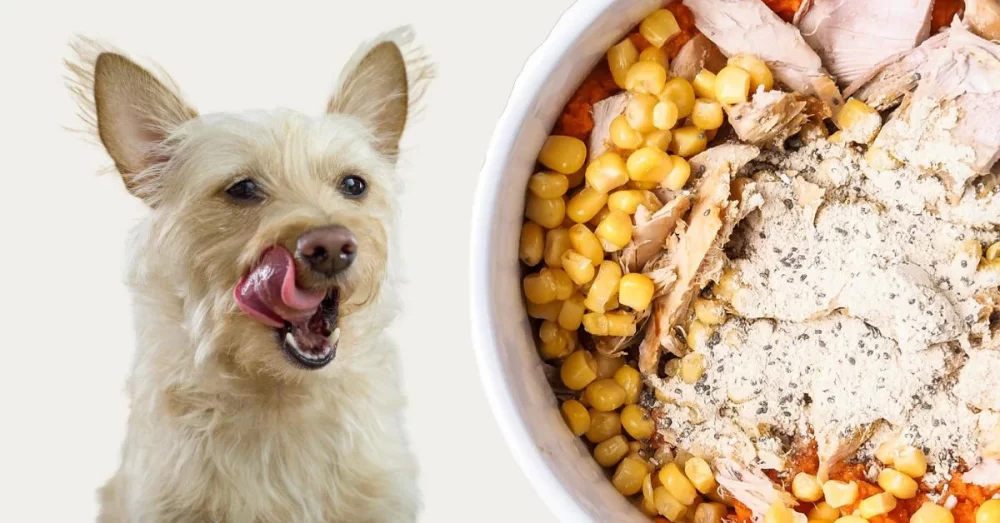- Benefits-of-Turkey-Dog-Food
- Ingredients-and-Preparation-Tips
- Balancing-Nutrition-for-Your-Dog
- Real-Life-Examples-and-Expert-Advice
- Where-to-Find-Quality-Products-and-Services
1. The Benefits of Using Turkey in Homemade Dog Food
When it comes to crafting homemade dog food, turkey stands out as an excellent ingredient. It offers a lean source of high-quality protein that supports muscle maintenance and overall vitality in dogs. Unlike some red meats, turkey is lower in fat, making it a healthy choice for dogs prone to weight issues or those needing a diet that supports joint health.
In addition to its nutritional profile, turkey is rich in essential vitamins and minerals such as B vitamins, zinc, and selenium, which contribute to a strong immune system and healthy skin and coat. Feeding your dog homemade meals that include turkey allows you to control the ingredients, avoiding fillers and artificial additives often found in commercial dog foods.
Many dog owners find that switching to homemade turkey-based meals can reduce allergy symptoms or digestive issues. This is because turkey is often less allergenic compared to other common protein sources like beef or chicken.
1.1 Why Choose Homemade Over Commercial Options?
While commercial dog food is convenient, it may contain preservatives, by-products, and ingredients that can cause adverse reactions in sensitive dogs. Making homemade dog food with turkey lets you customize meals to your pet’s specific needs, dietary restrictions, and preferences, ensuring freshness and transparency.

845 W Ridge Rd, Gainesville, GA 30501, USA
See Details2. Ingredients and Preparation Tips for Homemade Turkey Dog Food
Creating a balanced turkey dog food recipe involves combining lean turkey meat with wholesome vegetables and grains that support digestion and energy. Some commonly used ingredients include sweet potatoes, carrots, peas, brown rice, and spinach.
Here’s a detailed breakdown to help you get started:
2.1 Choosing the Right Turkey Cuts
Opt for ground turkey or turkey breast without skin to keep the fat content low. Avoid processed turkey products like deli meats that contain salt and preservatives harmful to dogs.
2.2 Vegetable and Grain Options
Vegetables like pumpkin and green beans provide fiber and antioxidants. Grains such as quinoa and brown rice are good carbohydrate sources that provide sustained energy. However, some dogs may have grain sensitivities, so consider grain-free alternatives like sweet potatoes.
2.3 Cooking and Storage Guidelines
Cook all ingredients thoroughly to avoid bacterial contamination. Steaming vegetables preserves nutrients better than boiling. After cooking, cool the food completely before serving or refrigerating. Homemade batches can be portioned and frozen for convenience.
3. Balancing Nutrition for Your Dog’s Health
Simply mixing turkey and vegetables isn't enough to meet all of your dog's nutritional needs. To maintain optimal health, consider the following:
3.1 Essential Nutrients
Dogs require a balance of protein, fats, carbohydrates, vitamins, and minerals. Supplementing homemade meals with fish oil or flaxseed can boost omega-3 fatty acids, which promote joint health and a shiny coat. Calcium is another vital nutrient, often added through crushed eggshells or specific supplements to support bone health.
3.2 Consulting with Professionals
Before switching your dog to homemade turkey food permanently, it’s wise to consult a veterinary nutritionist or your trusted vet. They can help tailor recipes to your dog’s age, breed, activity level, and health conditions. This step ensures your dog receives a balanced diet without deficiencies or excesses.
4. Real-Life Examples and Expert Advice
One of our clients at Hidden Brook Veterinary, a middle-aged Labrador named Max, struggled with allergies linked to commercial dog foods. After transitioning to a homemade turkey recipe customized by our veterinary nutrition team, Max’s skin conditions improved significantly within weeks. His owner shared that Max is now more energetic and enthusiastic during walks, highlighting the impact of proper nutrition.
Such stories illustrate that homemade diets, when carefully planned, can dramatically improve a dog’s quality of life. It’s not just about food; it’s about nurturing your pet’s well-being holistically.
4.1 Tips from Veterinary Experts
Experts recommend rotating protein sources periodically to reduce allergy risks and ensure nutrient variety. They also emphasize monitoring your dog’s weight and behavior after diet changes to catch any issues early.
5. Where to Find Quality Products and Services for Your Homemade Dog Food Journey
Creating healthy homemade dog food with turkey requires access to fresh, high-quality ingredients and reliable guidance. Hidden Brook Veterinary is a trusted resource for dog owners seeking expert advice, premium products, and tailored nutritional plans. Whether you need specialty supplements, recipe consultations, or ongoing health monitoring, their team can provide comprehensive support.
Choosing the right partners and resources enhances your confidence and success in feeding your dog a natural, wholesome diet that truly benefits their health and happiness.











